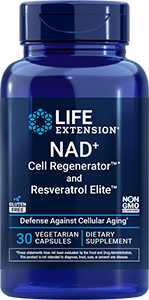
Newsletter
Newsletter
Testosterone Therapy May Be Safer Than We Thought, According to Meta-Analysis

Men who were treated for low levels of the hormone testosterone had a similar risk of cardiovascular events including arrhythmia, heart attack and heart failure compared to men who received a placebo, according to findings from a meta-analysis of clinical trials reported in the June 1, 2022, issue of The Lancet Healthy Longevity.1 Additionally, there was a similar incidence of venous thromboembolism in the testosterone and placebo groups, a condition men on testosterone therapy had been thought to be at greater risk of.
Because testosterone declines with age, many men seek prescription testosterone replacement therapy. In 2015, the U.S. Food and Drug Administration required manufacturers of prescription testosterone products to add label information concerning a potential increased risk of heart attack and stroke associated with testosterone treatment based on the findings of two observational studies, although other studies failed to obtain similar findings.
“We were unable to find evidence from our individual patient data (IPD) meta-analyses that testosterone increases risks of mortality or cardiovascular and/or cerebrovascular events in the short- to medium-term in men with low testosterone,” reported coauthor Channa Jayasena, MD, PhD, who is the Head of Andrology at the Imperial College of London.
The research team pooled data from 35 trials that examined the relationship between testosterone replacement therapy and the risk of cardiovascular events among a total of 5,601 men. A separate analysis was conducted using information from 17 of the trials that provided individual patient data for 3,431 participants.
These findings may open the door for men who had been concerned about the health risks of testosterone therapy. “Ongoing studies should help to determine the longer-term safety of testosterone but, in the meantime, our results provide much-needed reassurance about its short-to-medium term safety,” first author Jemma Hudson of the University of Aberdeen commented.
Products
Apply What You've Learned: Testosterone and the Cardiovascular System
- Testosterone may increase hematocrit, a measure of the proportion of blood that consists of red blood cells.2 High hematocrit has been associated with a greater risk of a blood clot formation in the veins, yet a study involving men treated with testosterone concluded that the small increase in hematocrit that occurred was unlikely to be relevant.3 A meta-analysis of 6 randomized controlled trials plus 5 observation studies that included a total of 1,249,640 men failed to find an association between testosterone use and venous blood clots.4
- Other studies have revealed lower risks of cardiovascular events and cardiovascular mortality in men with higher serum testosterone levels.5,6
- Men may benefit from regular blood testing, including hormone levels, cardiovascular risk factors, hematocrit and other blood factors, regardless of whether they are using testosterone replacement therapy.
- Since heart disease remains the world’s number 1 killer, everyone, male or female, should take steps to protect themselves from this disease, including not smoking, maintaining healthy blood pressure and lipid levels, consuming a heart-healthy diet and engaging in moderate exercise with a healthcare provider’s approval.7
References
- Hudson J et al. Lancet. 2022 Jun 1;3(6):E381-3.
- Jones SD et al. Sex Med Rev. 2015 Apr;3(2):101-112.
- Hayden RP et al. J Urol. 2016 Dec;196(6):1715-1720.
- Houghton DE, et al. Thromb Res. 2018 Dec;172:94-103.
- Ohlsson C et al. J Am Coll Cardiol. 2011 Oct 11;58(16):1674-81.
- Corona G et al. J Sex Med. 2018 Sep;15(9):1260-1271.
- “The top 10 causes of death.” World Health Organization. 2020 Dec 9. https://www.who.int/news-room/fact-sheets/detail/the-top-10-causes-of-death
Featured Life Extension Magazine® Article
Mushrooms that Boost Immune Function, by Michael Downey
Mushrooms have been used as medicines for thousands of years. Out of hundreds of mushroom varieties, shiitake, maitake and chaga mushrooms are three popular mushrooms that have been well-established to effectively support immune function.
Beta-glucans, found in mushrooms and yeast, are one key substance found in these fungi that has been clinically shown to help maintain a healthy immune system. When given beta-glucan extract, participants with upper respiratory tract infections had fewer symptomatic days and workdays lost to illness, less severe symptoms and an increase in the number of immune cells in the blood, interferon production and antibody secretion in saliva.
Could eating mushrooms help us live longer? A recent meta-analysis of five studies that included a total of 601,893 men and women revealed that an association between greater mushroom intake and a reduction in the risk of all-cause mortality during the studies’ follow-up periods.
Read Full Article
What's Hot
Health Concern
Testosterone replacement associated with lower risk of heart attack, stroke
Research presented at the Annual Congress of the European Association of Urology, held virtually July 9-12, 2021, revealed that testosterone replacement therapy was associated with a decreased risk of heart attack and stroke compared to no testosterone.
Related Life Extension Magazine® Articles

Why the FDA Is Wrong about Testosterone
Black-box labeling by the FDA will scare many men away from testosterone therapy, which is well-documented to inhibit heart disease, metabolic disorders, lowered libido, loss of muscle mass, and quality of life. The FDA ignored overwhelming solid research and instead, based its decision on flawed and misinterpreted studies.

How Low Testosterone Harms Men's Health
Low testosterone in men increases age-related disease risk and death from any cause. Three plant-based nutrients have been shown to boost free testosterone blood levels.
Spread the Health—Join Life Extension’s Web Affiliate Program
Are you a customer and love our products? Or are you an influencer or publisher of health content? Help us spread health and wellness by linking to Life Extension’s website and earn a commission on sales generated from your referrals.
We have teamed up with Commission Junction to provide our publishers with trusted third-party tracking, real-time reporting and monthly commission checks. Life Extension publishers enjoy a 6% commission on all web sales and a 30-day referral period.
Life Extension Magazine® Issue Now Online
A remarkable number of healthy-longevity findings have been published over the past 18 months.





